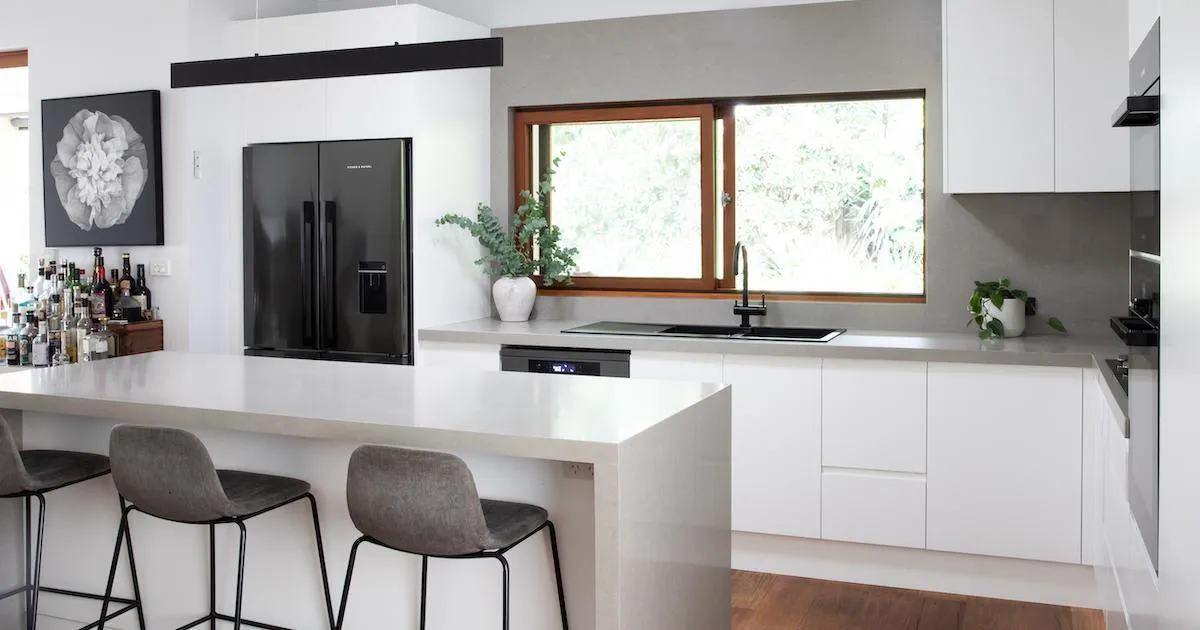
Eco-Friendly Kitchen Upgrades: Sustainable Materials for Your Remodel
Eco-conscious homeowners across Southern California are looking for ways to upgrade their kitchens without creating unnecessary waste. A full tear-out may seem like the obvious path, but it often leads to excessive landfill contribution and inflated budgets. No-demolition kitchen remodeling offers an intelligent alternative by preserving foundational structures and upgrading only what’s needed. Choosing sustainable materials along the way makes your home more efficient and environmentally responsible without compromising design.
Sustainability in kitchen upgrades begins with smart material selection and expert execution. Replacing surfaces instead of structures ensures less debris, fewer emissions, and a smaller ecological footprint. The benefits extend beyond environmental impact—they also include faster timelines, lower costs, and reduced household disruption. For families aiming to remodel without regret, eco-friendly upgrades are both practical and impactful.
Quartz Overlay Countertops For Kitchen Upgrades
Quartz overlay systems create elegant, low-maintenance countertops without removing the original surface, reducing landfill waste and demolition costs. These overlays bond directly to existing countertops and use only a fraction of the raw material needed for full slab replacements. Since they contain a high percentage of natural quartz, they are durable, scratch-resistant, and highly resistant to staining. The installation is quick, dust-free, and typically completed in a single day.
Unlike traditional countertop installation, quartz overlays eliminate the need to reroute plumbing or damage surrounding cabinetry. The seamless fit allows homeowners to enjoy a new kitchen surface without extended downtime or reconstruction. Quartz is naturally non-porous and hygienic, making it a superior option for households prioritizing both sustainability and cleanliness. Homeowners also avoid additional emissions from transporting and cutting large stone slabs.
Many quartz overlays are manufactured using recycled content and non-toxic binding agents, making them even more environmentally friendly. Their longevity further contributes to sustainability, as fewer replacements are needed over time compared to more fragile or porous materials. Families save on long-term maintenance and avoid chemical sealants that may release VOCs. Color options range from classic marble veining to modern concrete tones, offering flexibility without ecological compromise.
Quartz overlays also contribute to energy efficiency since their bright, reflective surfaces improve light distribution in the kitchen. Better lighting reduces the need for additional fixtures and minimizes energy consumption during daytime hours. Paired with LED under-cabinet lighting, these countertops enhance visibility while promoting sustainable energy use. Eco-friendly design doesn’t mean limiting style—it means choosing smarter materials that support both your vision and the environment.
Tile Backsplashes With Recycled or Low-Impact Materials
A kitchen backsplash upgrade offers a prime opportunity to incorporate sustainable tile materials like recycled glass, porcelain, and ceramics. Many modern tiles are manufactured from post-consumer waste, offering both style and environmental value. These materials mirror the look and quality of traditional tiles while reducing landfill contributions. Installation also generates less waste, especially when handled by experienced installers who measure and cut with precision.
Glass tiles in particular provide excellent light reflection, improving brightness without added energy consumption. When used strategically behind sinks or stoves, they enhance design and boost functionality while remaining environmentally sound. Recycled tile options come in a range of styles, including mosaic, subway, and geometric formats. Color variations and finishes suit both modern and traditional kitchens, allowing full creative freedom.
Sustainable tile choices also pair well with low-VOC adhesives and grouts that support healthier indoor air quality. Homeowners can enjoy peace of mind knowing that their kitchen upgrades don’t introduce toxins or harmful compounds into the space. Manufacturers of eco-conscious tiles often follow rigorous environmental practices, including water recycling and energy-efficient production. Supporting these producers helps reduce the footprint of your remodeling project.
Backsplashes may seem like a small detail, but their impact on design and sustainability is significant. When planned properly, a recycled tile installation enhances the entire kitchen while supporting waste-reduction goals. The durability of these materials ensures longevity without added burden on the environment. Combined with no-demolition remodeling, they contribute to a cleaner and smarter kitchen transformation.
Cabinet Refacing For Low-Waste Kitchen Upgrades
Cabinet refacing allows homeowners to retain their existing cabinet structure while replacing doors, drawer fronts, and visible veneers. This method drastically cuts wood waste and conserves energy by avoiding full cabinet production and disposal. Existing cabinetry is left intact, while updated surfaces provide a fresh look that rivals full replacements. The process uses fewer materials, generates less waste, and typically finishes within three to five days.
Sustainable veneer options include fast-growing renewable woods like bamboo or engineered laminates made with recycled fibers. These materials reduce demand for hardwoods and often carry certifications for responsible sourcing and low emissions. Non-toxic adhesives and low-VOC finishes can be used to maintain indoor air quality during and after installation. Homeowners enjoy a cleaner environment while benefiting from a stylish visual transformation.
Cabinet refacing also reduces the need for new plumbing, electrical, and wall alterations, which are common in complete kitchen tear-outs. Lower material demand and shorter installation times equate to a smaller environmental footprint. In addition to sustainability, homeowners also benefit from budget savings and minimal household disruption. Functionality is preserved while aesthetics are dramatically improved using resource-efficient techniques.
Refacing presents a perfect opportunity to integrate new features like soft-close hinges or custom storage inserts without replacing the entire cabinet frame. These small upgrades contribute to both convenience and sustainability, making better use of what already exists. Smart remodeling doesn't just involve what’s new—it involves making thoughtful choices about what to preserve. Refacing exemplifies this principle, offering beauty with responsibility.
Reducing Waste and Energy with No-Demolition Remodeling
Full-scale renovations generate massive amounts of construction waste and often require heavy machinery and transportation, increasing carbon emissions. No-demolition remodeling eliminates those steps, focusing instead on surface upgrades that reuse core structures. Cutting, fitting, and installing over existing surfaces reduces labor, travel, and disposal requirements. Fewer materials shipped and fewer loads to landfills translate into major environmental savings.
This method also improves energy conservation within the home itself. Retaining cabinetry and counters avoids exposure to poorly insulated walls or old wiring, keeping HVAC systems running efficiently during and after construction. Less dust and disruption means families can remain in their homes without resorting to energy-intensive temporary accommodations. Projects complete faster, consume fewer materials, and require less energy overall.
Skilled installers ensure precise measurements and low-waste practices, avoiding excessive offcuts or discarded material. Site cleanliness and controlled ventilation limit dust generation, protecting both the indoor environment and the health of those living there. Lower on-site activity also reduces risk of damage to adjacent rooms or surfaces, preserving more of the home’s original structure. Thoughtful, surface-focused remodeling strategies make waste prevention part of the design process.
Choosing no-demolition methods demonstrates a commitment to resource conservation without sacrificing creativity or comfort. It reflects a growing awareness among homeowners that kitchen upgrades can be both functional and environmentally sound. The future of remodeling lies not in excess but in efficiency, and surface-focused techniques lead the way. Kitchen upgrades should enhance the home while respecting the planet.
Make a Greener Choice for Your Kitchen
Sustainable kitchen upgrades start with smart material choices and no-demolition solutions that reduce waste and protect existing structures. Eco-conscious options like quartz overlays, recycled tile backsplashes, and cabinet refacing combine form, function, and environmental responsibility. Energy-efficient finishes and low-impact installations help homeowners meet green goals without giving up modern design. For an expert partner in eco-friendly remodeling, contact us and start your sustainable kitchen journey today.


